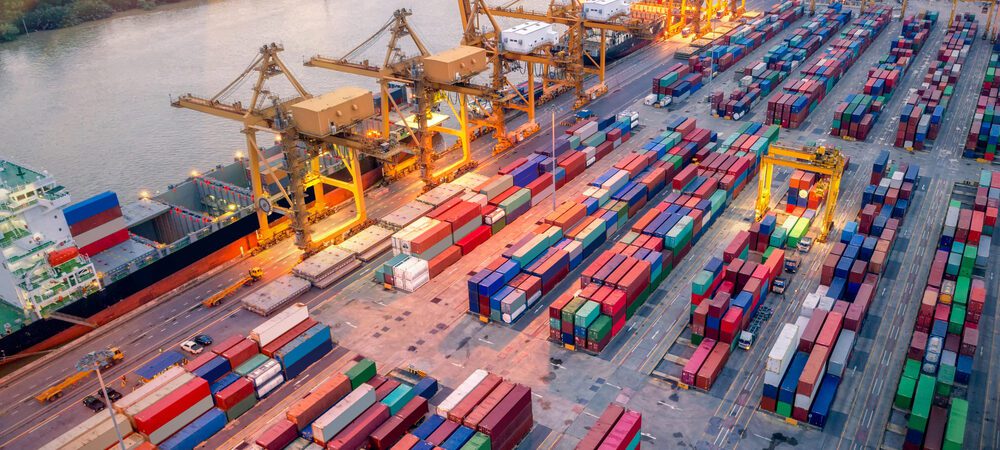Recent shocks like the COVID-19 pandemic and Russia’s invasion of Ukraine have demonstrated the fragility of many critical supply chains. In some cases, firms have built supply chains so fabulously long and complex that, despite the efficiency gains, they are worryingly brittle. In others, non-market autocracies have engaged in unfair trade and economic practices to promote dependency and overreliance. In response, open societies have proposed a myriad of policy interventions to make their supply chains more resilient. This includes investments in domestic manufacturing and new trade agreements to diversify sources of risk. Yet, these interventions have generally not benefited from an organized approach; plenty of practice, but little theory.
Tension exists, over the short-term, between resilient and efficient supply chains. Investments to build resilient supply chains marginally reduce their efficiency just as policies to make supply chains more efficient can undermine their resilience. The challenge for policymakers is to navigate this trade-off to find a balance which promotes societal well-being. In service of that end, this project intends to be a guide for policymakers.
It begins with a theoretical framework for supply chain resilience arguing for an approach centered on supply chain vulnerabilities. Policymakers can identify, and even quantify, various supply chain vulnerabilities, such as overreliance on China for critical minerals or excessive import reliance for personal protective equipment (PPE). Vulnerabilities, by themselves, do not cause harm. However, shocks—wars, pandemics, or natural disasters—exploit these vulnerabilities to reduce societal well-being. Policymakers can mitigate the impact of shocks by building resilience against those vulnerabilities. Since not all vulnerabilities threaten critical functions like national security or the life and health of citizens (e.g. New Zealand is heavily import dependent on furniture), policymakers should prioritize building resilience against the most critical vulnerabilities.
To build resilience, policymakers have three types of interventions available. Transparency interventions, like stress tests and supply chain reviews, help companies help themselves by improving the flow of supply chain intervention in the market. Diversification policies, such as different trade arrangements, promote resilience by spreading risk widely. And industrial interventions bring subsidies or public procurement to bear to drive investment in domestic manufacturing. However, policymakers must be attuned to the costs of deploying these interventions since, over the short-term, marginal investments in resilience mean marginal decreases in market efficiency. Just as optimizing for efficiency sees the entire production of a good produced by a foreign adversary, over-optimizing for resilience might result in crippling autarky.
To navigate these trade-offs, and identify the most effective interventions, this project proposes the Supply Chain Resilience Checklist. The Checklist is a five-step process to help policymakers ask the right questions to effectively identify vulnerabilities, winnow those to the most critical, assess what steps the private market has already taken to build resilience, and tailor an intervention to effectively seal the vulnerability. Although the economic contours of vi each open society will be different, the Checklist is designed to apply broadly, giving policymakers flexibility to focus their efforts on their own country.
Having built a conceptual foundation, this project then explores the variety of recent supply chain resilience policies as they have been practiced by open societies. It selects a basket of ten countries—Australia, the European Union, India, Israel, Japan, New Zealand, Singapore, South Korea, United Kingdom, United States—from which to discuss and analyze their different transparency, diversification, and industrial interventions. In doing so it draws lessons from the positives and negatives of these interventions to further guide future policymaking in an effective direction.
Combining theory and practice, this project concludes with action. It proposes the Security and Trade Agreement for Resilience (STAR), a new plurilateral agreement for supply chain resilience. The STAR would unite open societies to deploy all three types of interventions to build resilience comprehensively. It would liberalize trade in the most critical goods, require parties to make minimum investments in domestic manufacturing, promote trade facilitation and short-supply cooperation, and include provisions targeted at the unfair practices used by non-market autocracies to undermine supply chain resilience. In proposing the STAR, this project also offers a case study for how policymakers would use the Supply Chain Resilience Checklist to effectively deploy interventions in response to supply chain vulnerabilities.
2023-08-Sam-Mulopulos-Axford-Fellow-Supply-Chain-Resilience-PolicyTo read the full paper, click here.

